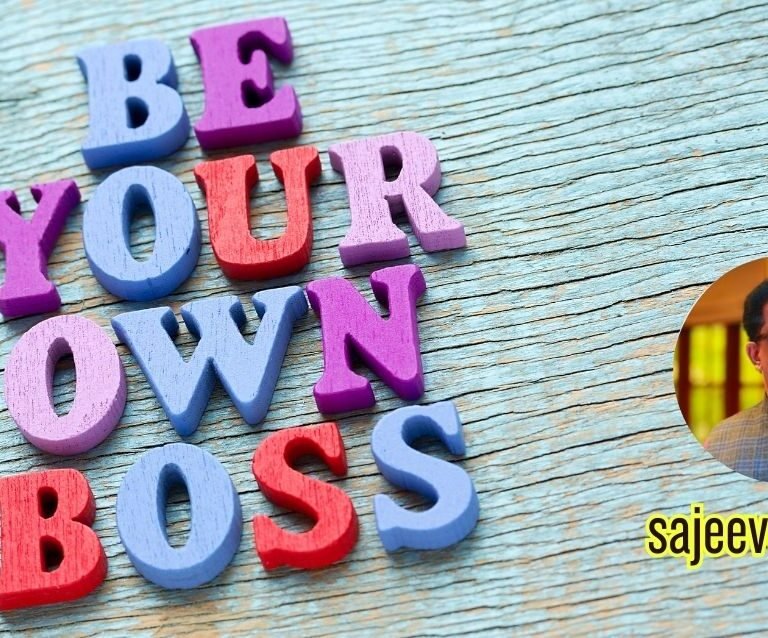Intrinsic Worth
Intrinsic worth refers to the inherent value that individuals possess, independent of external circumstances or societal measures of success. It is a fundamental concept that emphasizes the importance of recognizing one’s own value, which is not contingent upon achievements, financial status, or social standing. Understanding intrinsic worth is essential for developing a strong sense of self and fostering emotional resilience in a world often obsessed with external validation.
The journey to recognizing your intrinsic worth begins with self-acceptance. Individuals frequently grapple with the belief that their value is tied to their accomplishments. This perception leads to a cycle of self-doubt and can negatively affect mental well-being. Unlike external validation, which relies on approval and recognition from others, intrinsic worth remains constant regardless of life circumstances. It is the understanding that each person holds value simply by existing, not because of what they have achieved or how they compare to others.
By acknowledging intrinsic worth, individuals can foster a healthier relationship with themselves. Embracing this concept encourages people to shift their focus from striving for external markers of success to cultivating self-love and acceptance. This perspective allows for personal growth based on individual values and passions rather than societal pressures. Importantly, recognizing intrinsic worth promotes the idea that everyone is deserving of respect and dignity, regardless of their successes or failures.
In this way, understanding intrinsic worth empowers individuals to celebrate their uniqueness. It compels them to appreciate their contributions to the world and the relationships they cultivate. By fostering a sense of personal value, one can build a life that is fulfilling and authentic, rooted in self-acceptance rather than the ephemeral nature of external validation.
The Impact of Society on Self-Worth
Society plays a pivotal role in shaping our perceptions of self-worth. The standards set by cultural norms and societal expectations often dictate how individuals measure their own value. This can create a disconnect between intrinsic worth and external validation. For instance, the media frequently promotes unrealistic ideals of beauty, success, and achievement that can lead individuals to base their self-esteem on these superficial benchmarks. As a result, many may feel inadequate or unworthy when they are unable to measure up to these fabricated standards.
The pressure to conform to societal ideals can be overwhelming. From a young age, individuals are bombarded with messages that suggest their worth is contingent upon meeting certain criteria, such as physical appearance, socioeconomic status, or professional success. This can result in a constant cycle of comparison, where individuals assess themselves against others who appear to fulfill these expectations. The impact of social media has only intensified this problem, as curated images and lifestyles can create an illusion of perfection that is unattainable for most. Consequently, this creates an environment where self-worth is closely tied to external factors rather than the acknowledgment of one’s inherent value.
However, it is vital to challenge these societal norms and recognize that self-worth should not be dictated by external influences. Individuals can profoundly benefit from engaging in self-reflection and understanding that their value is innate and independent of societal approval. Breaking free from the confines of societal expectations can empower individuals to appreciate their unique qualities and contributions. By redefining self-worth based on personal values and beliefs rather than societal standards, individuals can cultivate a healthier self-image and ultimately realize that they are enough just as they are.
Overcoming Negative Self-Talk
Negative self-talk is a pervasive issue that can significantly impact an individual’s self-esteem and overall mental well-being. Recognizing and combating this detrimental internal dialogue is critical to nurturing intrinsic worth. Common phrases such as “I’m not good enough,” “I always fail,” or “I don’t deserve happiness” can become ingrained patterns that undermine confidence and perpetuate feelings of inadequacy. The first step in overcoming negative self-talk is awareness. By identifying these harmful thoughts as they arise, individuals can begin to challenge their validity.
One effective strategy is to reframe these negative statements into more positive affirmations. For instance, instead of thinking, “I can’t do this,” one might encourage themselves with, “I will learn from my mistakes and grow.” This shift not only alters the perception but also reinforces a sense of capability and self-worth. Additionally, keeping a journal dedicated to documenting moments of self-doubt and subsequent achievements can serve as a powerful reminder of one’s abilities and progress.
Another helpful technique is to practice self-compassion. Treating oneself with the same kindness and understanding one would offer a friend fosters a healthier mental landscape. Rather than berating oneself for shortcomings, consider acknowledging that everyone encounters challenges and imperfections. Developing a supportive inner dialogue enhances resilience and reinforces the belief that one is enough, despite any perceived flaws.
Lastly, surrounding oneself with positive influences, whether through uplifting relationships or motivational content, can help counteract negative self-talk. Engaging in supportive communities allows individuals to gain perspectives that challenge their limiting beliefs. Building a positive self-image is a gradual process, but by actively reframing negative thoughts and cultivating self-acceptance, individuals can significantly improve their internal dialogue and recognize their intrinsic worth.
Practicing Self-Acceptance
Self-acceptance is a fundamental aspect of recognizing one’s intrinsic worth. It involves embracing who we are without undue judgment or criticism. In a world where external validation often determines self-esteem, the journey to self-acceptance becomes even more critical. By acknowledging our strengths and weaknesses alike, we can develop a more holistic view of ourselves, paving the way for personal growth and fulfillment.
One effective practice to cultivate self-acceptance is mindfulness. Mindfulness encourages us to be present in the moment and to observe our thoughts and feelings without judgment. Through regular mindfulness practices, such as meditation or mindful breathing, we learn to observe our self-critical thoughts and replace them with a more compassionate perspective. This shift allows us to understand that our worth is not hinging on societal expectations but rather on embracing our true selves with all our imperfections.
Another important aspect of fostering self-acceptance is practicing gratitude. By focusing on the positive aspects of ourselves, we can create a habit of recognizing our unique qualities and achievements. Keeping a gratitude journal can serve as a powerful tool to remind us of what we appreciate about ourselves, which in turn nurtures our sense of value. Each entry offers a moment to reflect on personal qualities and experiences that contribute to our identity, thus reinforcing the idea that we are enough, just as we are.
Additionally, acknowledging our unique qualities plays a crucial role in self-acceptance. Everyone possesses distinct attributes, experiences, and talents that contribute to their identity. Embracing these uniqueness often involves celebrating our successes, no matter how small, and understanding that they form part of our narrative. Acceptance of our individuality empowers us to take pride in who we are and to acknowledge that our intrinsic worth is not diminished by comparison to others.
By integrating mindfulness, gratitude, and an appreciation for our unique attributes into our daily lives, we can nurture self-acceptance. This practice ultimately reinforces the understanding that we are inherently worthy and enough, regardless of external validation or societal standards.
Building Confidence Through Self-Care
Self-care is an essential aspect of personal development, particularly in fostering confidence and a positive self-image. It fundamentally involves acknowledging one’s intrinsic worth and taking conscious steps to nurture one’s physical, mental, and emotional well-being. Engaging in self-care practices not only helps individuals feel better about themselves but also reinforces the belief that they are deserving of love and respect.
Physical self-care can greatly influence confidence levels. This includes maintaining a balanced diet, engaging in regular exercise, and ensuring adequate sleep. When individuals take the time to care for their bodies, they often experience an increase in energy, improved mood, and a sense of accomplishment. These physical benefits can lead to greater self-esteem, allowing one to embrace their inherent value. For instance, participating in fitness activities or taking leisurely walks can boost endorphin levels and provide a sense of achievement, further promoting the notion that one is enough.
Mental self-care is equally vital in building confidence. This could encompass practices such as meditation, journaling, or reading. These activities can help cultivate a positive mindset and improve one’s self-perception. By dedicating time to reflect on personal thoughts and feelings, individuals can better understand their strengths and weaknesses, which ultimately instills a greater sense of self-worth. Furthermore, seeking professional help when necessary is a crucial component of mental self-care, as it provides guidance and support in navigating personal challenges.
Lastly, emotional self-care involves recognizing and addressing one’s emotional needs. Engaging in activities that bring joy and fulfillment, such as spending time with friends or pursuing hobbies, can significantly enhance self-esteem. Practicing gratitude and affirming one’s positive qualities can also shift one’s perspective towards self-acceptance, reinforcing the belief that they are indeed worthy. Therefore, integrating these self-care practices into daily life can lead to sustainable confidence and a reinforced sense of intrinsic worth.
Surrounding Yourself with Positivity
Creating an environment that fosters positivity is essential for recognizing and nurturing our intrinsic worth. The individuals we choose to surround ourselves with significantly influence our self-perception and overall mental well-being. Positive relationships can inspire growth, encourage self-acceptance, and enhance our sense of belonging, while negative influences may lead to self-doubt and feelings of inadequacy.
To build a supportive network, it is crucial to evaluate the current relationships in our lives. Seek out those who uplift and inspire; be it family members, friends, colleagues, or mentors. These individuals contribute to a positive atmosphere by offering encouragement, understanding, and constructive feedback, reinforcing the idea that each person is enough just as they are. In contrast, distancing oneself from toxic relationships—where negativity, criticism, or dismissiveness prevails—can foster a more affirming environment conducive to self-worth development.
Moreover, cultivating positivity can extend beyond personal relationships. Engaging in community activities, volunteering, or joining clubs with shared interests can introduce you to supportive individuals who reinforce positivity. Such experiences not only foster social connections but also promote a sense of accomplishment and community belonging, which are vital for enhancing self-esteem.
Communication plays a pivotal role in nurturing healthy relationships. Open, honest dialogues about feelings, aspirations, and challenges can strengthen bonds and build trust among individuals. Additionally, practicing gratitude and expressing appreciation towards others can create a reciprocal positive influence, enhancing collective relationships. Remember also the importance of self-reflection; it equips us to identify and address negativity in our lives, guiding us toward a more supportive network. By consciously surrounding ourselves with positivity, we can cultivate an atmosphere that acknowledges our intrinsic worth and nurtures our personal growth.
Acknowledging Your Achievements and Journey
Acknowledging personal achievements is a vital step in recognizing one’s intrinsic worth. Each individual’s journey is unique, marked by distinct milestones and experiences that contribute to their personal growth. Celebrating small victories, no matter how trivial they may seem, plays an essential role in building self-esteem and reinforcing the idea that we are enough. It is important to remember that progress is not always linear, and every step forward, regardless of its size, brings us closer to our goals.
Reflecting on personal achievements serves as a reminder of the resilience and determination exhibited throughout our journey. It may be beneficial to maintain a journal or a visual representation of milestones reached, which can act as a source of motivation during challenging times. Documenting these accomplishments can help individuals recognize patterns of success and the skills they have developed, thereby enhancing their sense of worth.
Furthermore, the impact of one’s journey extends beyond personal success. It is often intertwined with the experiences and successes of others, illustrating that we are part of a broader community. Recognizing that our paths contribute to collective narratives not only fosters a sense of belonging but also emphasizes the importance of each individual’s story in enriching the tapestry of human experiences. By embracing both our accomplishments and the journey taken to achieve them, we cultivate an appreciation for our intrinsic worth. This acknowledgment is not merely an exercise in self-reflection but a declaration that each person, in their unique way, is deserving of respect and validation. Establishing this understanding can empower individuals to navigate life’s challenges with confidence and poise, reinforcing the belief that they are, indeed, enough.
Cultivating a Growth Mindset
A growth mindset is a concept introduced by psychologist Carol Dweck, which suggests that individuals can develop their abilities and intelligence through effort, learning, and perseverance. Unlike a fixed mindset, which assumes that talents and intelligence are static traits, a growth mindset encourages the belief that one’s skills and abilities can be enhanced. This perspective not only fosters resilience in the face of setbacks but also promotes a sense of intrinsic worth, as individuals begin to appreciate the journey of self-improvement rather than fearing failure.
Embracing a growth mindset can significantly transform challenges into opportunities for growth. For instance, when facing difficulties, individuals with a growth mindset tend to view these moments as valuable learning experiences. They are more likely to analyze what went wrong, seek out feedback, and adjust their strategies. This proactive approach reinforces the belief that their efforts can lead to success, thereby enhancing overall self-worth. Seeing oneself as capable of improvement can empower individuals to take risks and pursue new challenges with confidence.
It is essential to recognize that believing in one’s capacity to change and improve is foundational to cultivating a growth mindset. Great achievements are often the result of persistent effort and a willingness to learn from mistakes. This belief not only elevates self-esteem but also encourages a more positive self-view. For example, when individuals celebrate small victories along their journey, they build momentum and a stronger sense of self-worth. As they continue to grow, they increasingly realize that they are enough, fostering a healthier relationship with their capabilities.
Living Authentically
Living authentically is a crucial step towards recognizing and embracing your intrinsic worth. Authenticity involves being true to oneself, which means aligning your actions, values, and beliefs with who you genuinely are. In a world increasingly filled with external pressures and societal expectations, understanding the importance of living authentically allows individuals to cultivate a deeper sense of self-acceptance and confidence. To start, it is vital to engage in self-reflection, which helps in uncovering core values and beliefs that genuinely resonate with you. This process requires a commitment to honesty and a willingness to confront uncomfortable truths.
Expressing your true self in personal relationships can be particularly liberating. It invites richer connections with others, as genuine interactions foster trust and understanding. One practical way to enhance authenticity in relationships is by openly communicating your thoughts, feelings, and aspirations. This honest exchange gives permission for others to do the same, creating a supportive environment where everyone can thrive. Furthermore, it is essential to set boundaries to protect your space and well-being. Doing so encourages respect for your identity and reinforces your intrinsic worth.
In professional contexts, living authentically may seem more challenging due to workplace dynamics and corporate cultures. However, maintaining your integrity and authenticity in the workplace is equally important. You can embody authenticity by sharing your unique perspectives and ideas, as well as by being transparent about your goals. When your professional persona aligns with your personal identity, it fosters a sense of fulfillment that can enhance job satisfaction. Ultimately, embracing your authentic self in all areas of life is a powerful affirmation of your inherent worth, contributing to a more meaningful existence.









